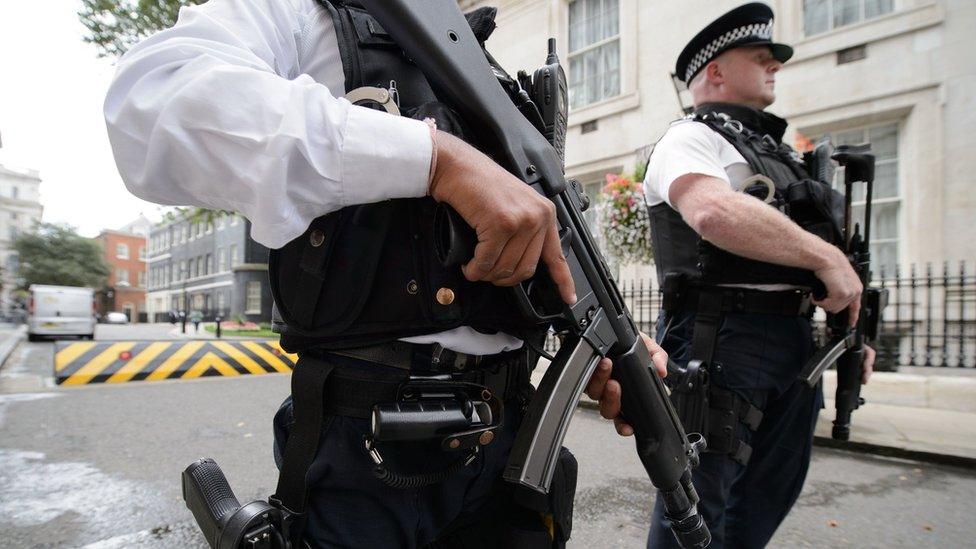UK officials probe Iran generals' antisemitic talks to students
- Published
Watch: Clips of Iran generals' speeches to UK students
Videos of antisemitic speeches by Iranian generals, given to UK students, are being investigated by the Charity Commission.
The regulator is also looking at footage of "death to Israel" chants at an Islamic charity's UK premises.
Verified by the BBC, two of the videos show talks by members of Iran's Islamic Revolutionary Guard Corps. One described an apocalyptic war on Jews.
The group that promoted the online talks said it respects all communities.
The footage - which also includes a denial of the Holocaust - adds to growing concerns from some MPs that the Islamic Revolutionary Guard Corps (IRGC) is attempting to radicalise UK Muslims. Security services have also warned it is inciting violence and plotting to kidnap or kill people on British soil.
One of the most powerful paramilitary organisations in the Middle East, the IRGC controls the Iranian government's foreign covert operations and supports militant groups such as Hamas in Gaza, Hezbollah in Lebanon, and the Houthis in Yemen.
The IRGC has previously been linked to kidnap and assassination plots in the UK. Counter-terror police confirmed in February last year that 15 such plots had come out of Iran since 2020, and the BBC has since been told there has been at least one more.
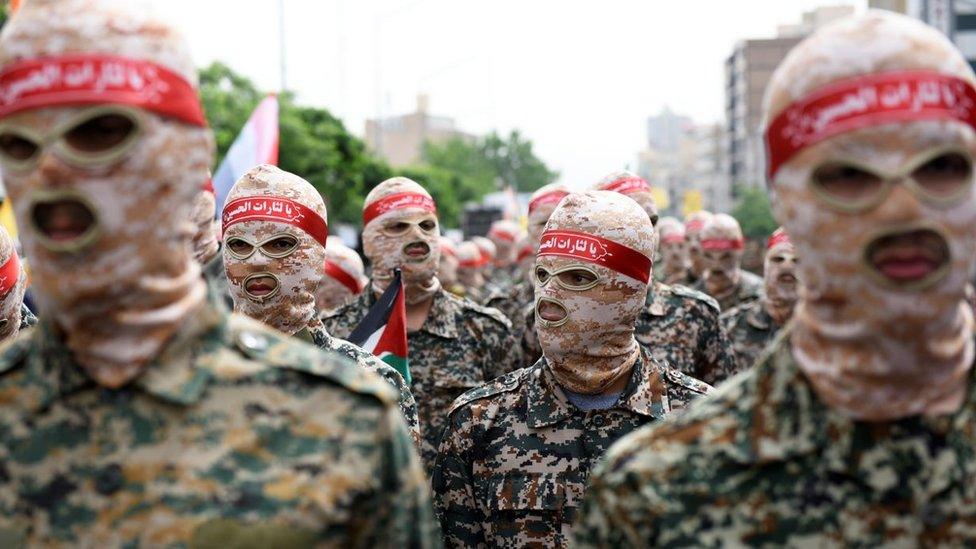
The IRGC is one of the most powerful paramilitary organisations in the Middle East
The videos seen by the BBC were recorded in 2020 and 2021 and show three events.
Two were live-streamed speeches by former and active IRGC commanders.
The other was an in-person event inside the Kanoon Towhid Islamic centre in west London, commemorating Iran's top military commander Gen Qasem Soleimani, who was killed in a US air strike in 2020. Chants of "death to Israel" were heard at the event, but it is not known who was saying them.
The BBC has also seen evidence of another online talk to UK students by an IRGC commander who has since boasted of his role in training Hamas before the 7 October attacks.
The online talks were promoted in advance by the Islamic Students Associations of Britain (ISA) and its affiliates, which use the Kanoon Towhid centre as a meeting place. Unlike the UK's main Muslim student groups, the ISA was founded to promote the philosophy of the leader of the Islamic Revolution in Iran, Ayatollah Khomeini.
Kanoon Towhid is owned by the Al-Tawheed (TUCF) Charitable Trust. The trust was already being investigated by the Charity Commission after reports of the event honouring Gen Soleimani, who was sanctioned by the UK for his links to terrorism. The commission is now examining the videos seen by the BBC, which include footage of this event.
The commission's chair, Orlando Fraser, has previously warned that charities must not "become forums for hate speech" or extremism. The Charity Commission has the power to investigate, sanction or close down charities which breach the regulations.
Conservative MP Alicia Kearns, who chairs the Foreign Affairs Select Committee, described the speeches as a "brazen act of radicalisation". She said the IRGC should be added to the list of proscribed terrorist groups in the UK, meaning it would be illegal to be an IRGC member or to show support for them.
In one recording - an Instagram Live from Iran in September 2020 which has been viewed about 1,500 times - IRGC commander Hossein Yekta said universities had become "the battlefront" and urged the students listening to become "soft-war officers".
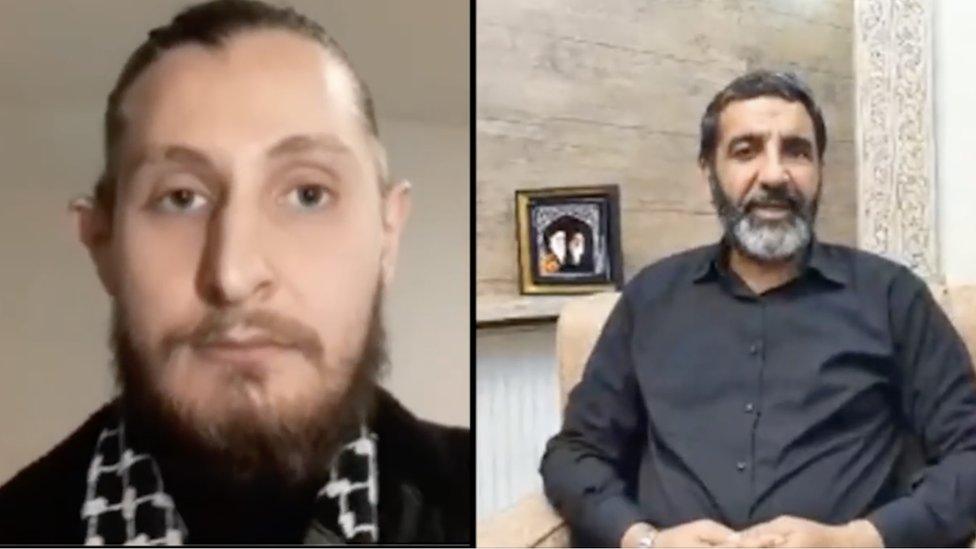
IRGC Gen Hossein Yekta (right) told UK students that universities had become a "battleground"
Kasra Aarabi - director of IRGC research at the US-based campaign group United Against Nuclear Iran, and who shared the videos with the BBC - said "soft-war officers" is a term used by Iran to describe recruits to its ideological battle with the West. He said it was coined by a branch of the IRGC, "which today is proactively conducting terror plots on British soil".
Ali Ansari, a professor of Iranian history at the University of St Andrews, said the talks reflected "an attempt to encourage disruption, discontent, and basically undermine the stability of Western society, and what we need is a much more robust response to it".
Prof Ansari said proscribing the IRGC as a terrorist organisation would be difficult, as it is an arm of the Iranian state. But he said the UK government could still shut down its activities.
The other video of an online talk seen by the BBC, this time from January 2021, again glorified the death of Gen Soleimani.
Seen by tens of thousands of people, the video shows former IRGC commander Gen Saeed Ghasemi comparing Soleimani's death to the Hollywood film Terminator 2, saying that after Soleimani was attacked, the broken pieces would come back together, stronger than before.
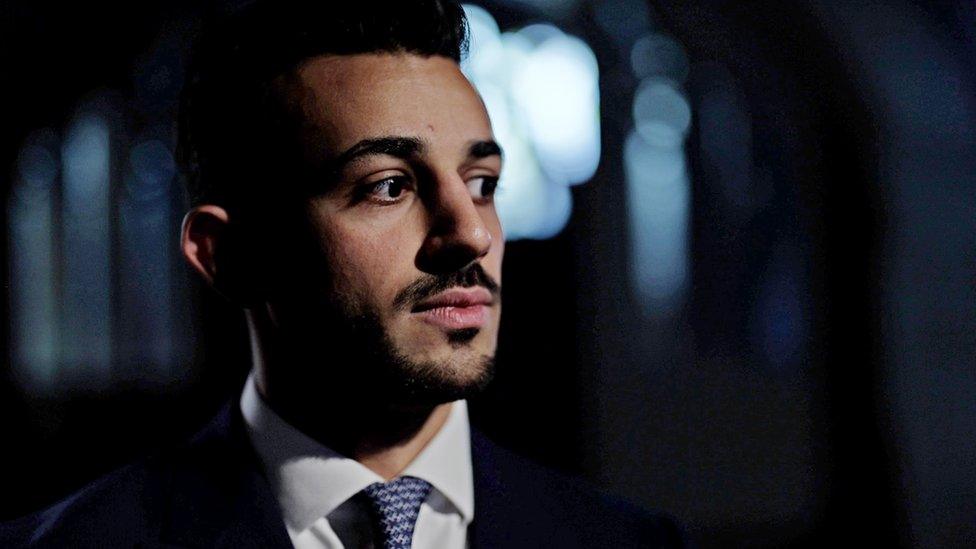
Kasra Aarabi from United Against a Nuclear Iran said the IRGC is actively plotting terror attacks on UK soil
"You killed Qasem," he said, referring to the US, "but he shattered into millions of hearts in the Islamic world. You can no longer stand in his way."
In the footage, Gen Ghasemi also falsely claimed the Holocaust was "a lie and a fake" and described an apocalyptic war that the British students could join to "bring an end to the life of the oppressors and occupiers, Zionists and Jews across the world".
He added: "God willing, myself and you good students in Europe will be written in the beautiful list of the soldiers of the resistance from tonight."
In addition to the videos, the BBC has seen promotional posts dating from November 2020 for another talk to British students featuring elite former IRGC commander Ezzatollah Zarghami. Mr Zarghami, who is sanctioned in the UK for human rights abuses, posted a picture of himself on his Telegram social media account speaking live over Zoom on the evening of the talk.
Mr Zarghami was part of a group of radical students who stormed the US embassy in Tehran in 1979, holding Americans hostage for more than a year. He is currently the minister of Cultural Heritage and Tourism in Iran and has since boasted of training Hamas in Gaza prior to the 7 October attacks. In an interview on Iranian state TV, he also described how he had provided Hamas with missiles.
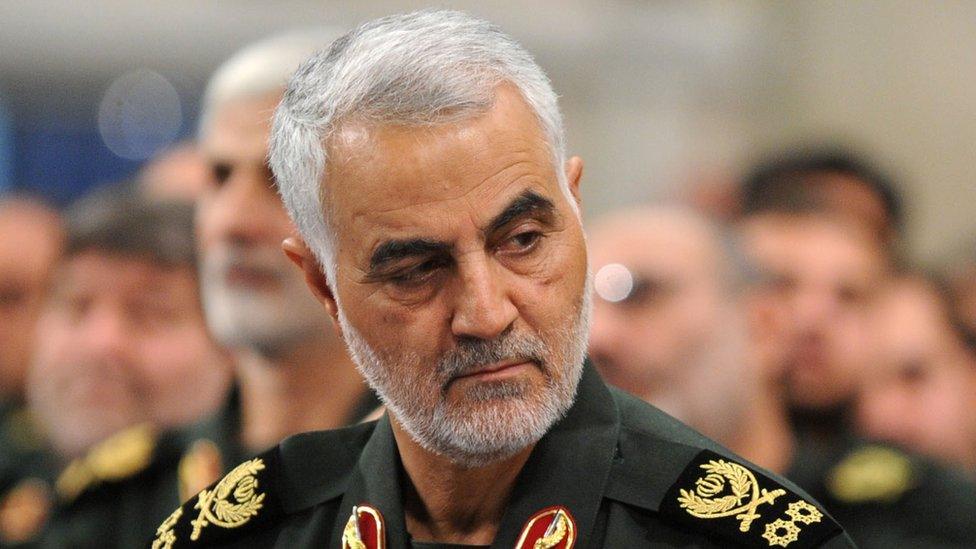
Some of the videos were of events celebrating Iran's top general Qasem Soleimani, sanctioned for terror links and killed by the US
Online adverts for the speeches in the videos displayed the logo of the Islamic Students Associations of Britain. In one of the videos, the association's name is spelled out on the screen in Farsi.
And the Instagram Live event from September 2020 was hosted by Mohammadhussain Ataee, a British citizen educated in Yorkshire who was secretary of the Islamic Students Associations of Britain at the time. It is the only video he appears in and he is no longer the secretary of the organisation.
However, Mr Ataee is still the secretary of the Union of Islamic Students Associations of Europe - an umbrella body that includes the British organisation. In January last year, he was granted an audience in Tehran with Iran's Supreme Leader, Ayatollah Ali Khamenei.
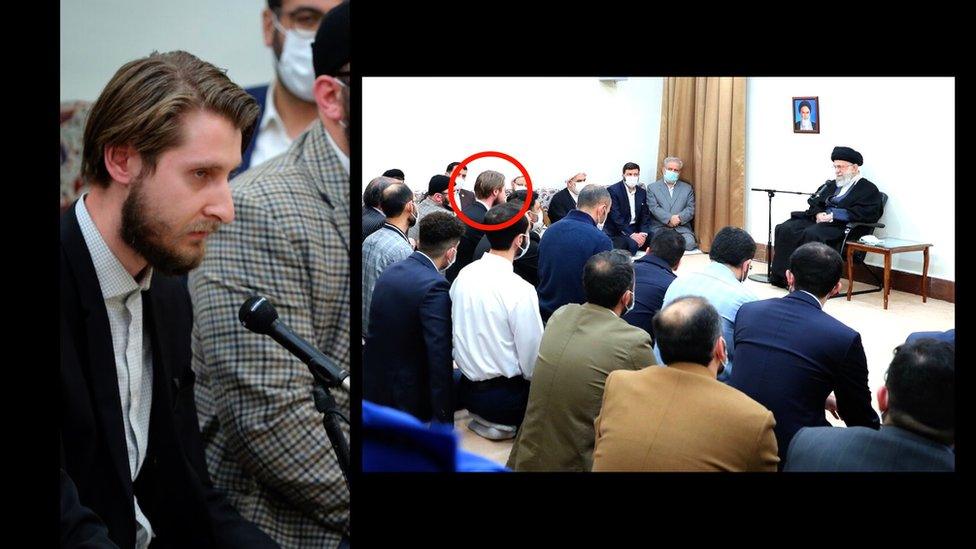
Student group secretary Mohammadhussain Ataee was pictured meeting Ayatollah Khamanei in Tehran
Mr Ataee said the allegations against him are false, but would not answer the BBC's questions. He has previously said he does not have direct or indirect affiliation to the IRGC, or any army, government or security group in the world.
He added the Islamic Students Associations have never had any "physical gathering in Kanoon Towhid or anywhere else with any of the falsely accused individuals".
Mr Ataee also said the students association was a democratic organisation which makes its decisions through an executive committee, not through one person.
After watching the footage of IRGC commanders, the foreign affairs committee chair Ms Kearns urged the government to make such events illegal, adding the videos depicted "a risk to the stability of our country".
"It makes me really worried about the state of our society, everyone should be horrified by what they're seeing in those videos," she said. "It's division, it's hatred. It's inciting violence, potentially it's incredibly serious."
She said the IRGC had to be proscribed and "they are aiding and abetting people who would commit terrorism on our soil".
One of the people who says he is under threat is Vahid Beheshti, a British-Iranian journalist and human rights activist. He told the BBC police have warned him his life is at risk.
"Every day that I wake up, I think this is my last day," said Mr Beheshti, who has been holding a sit-in protest outside the Foreign Office for almost a year. He said in the past few weeks he had been approached and was told: "I'm gonna cut your neck".
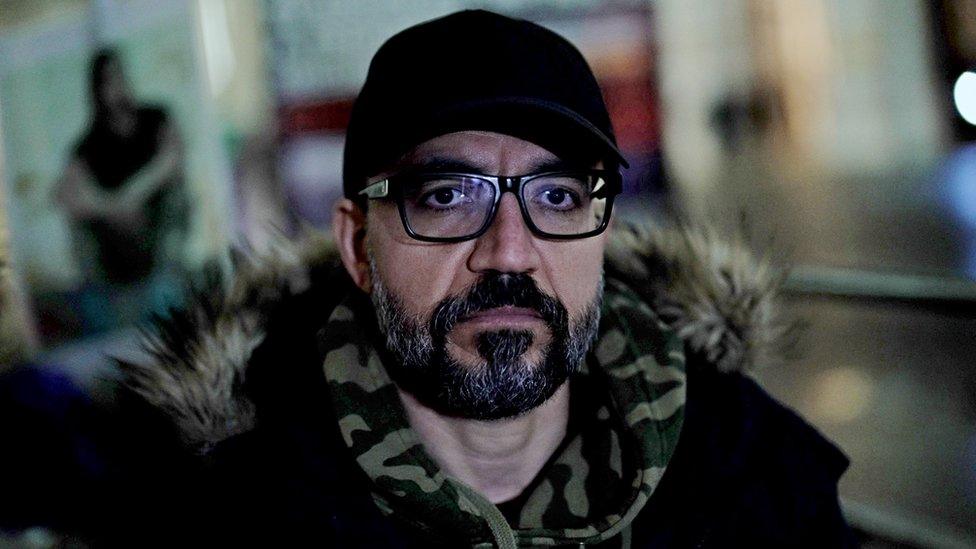
British-Iranian activist Vahid Beheshti said people he believed were IRGC agents had threatened him
Mr Beheshti said he believes the small group of people targeting him are IRGC agents, operating freely in the UK.
The government says it keeps the list of proscribed organisations under review, but it has a policy not to comment on whether a specific organisation is or is not being considered.
A spokesperson said: "We have sanctioned more than 350 Iranian individuals and entities, including the Islamic Revolutionary Guards Corps in its entirety."
The Islamic Students Association of Britain told the BBC it is an independent group led by student volunteers with no affiliations to any government.
The association said it respects people from all backgrounds, faiths and communities and "does not support or endorse anyone that does not share these values". It added that "all its activities are clearly lawful".
The Al-Tawheed (TUCF) Charitable Trust, which runs the Kanoon Towhid centre, was repeatedly contacted for comment but did not respond.
Related topics
- Published3 January 2020
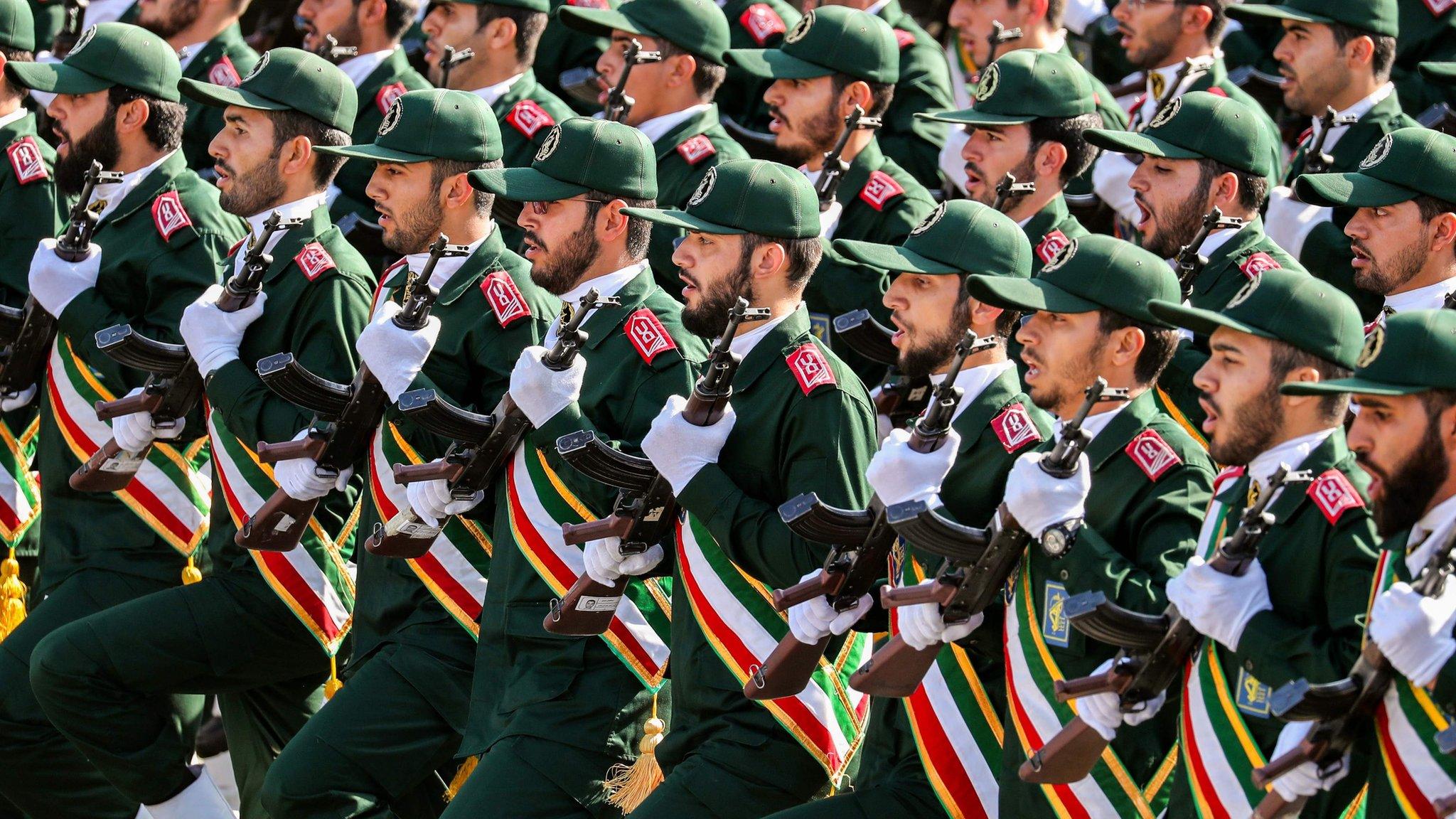
- Published16 November 2022
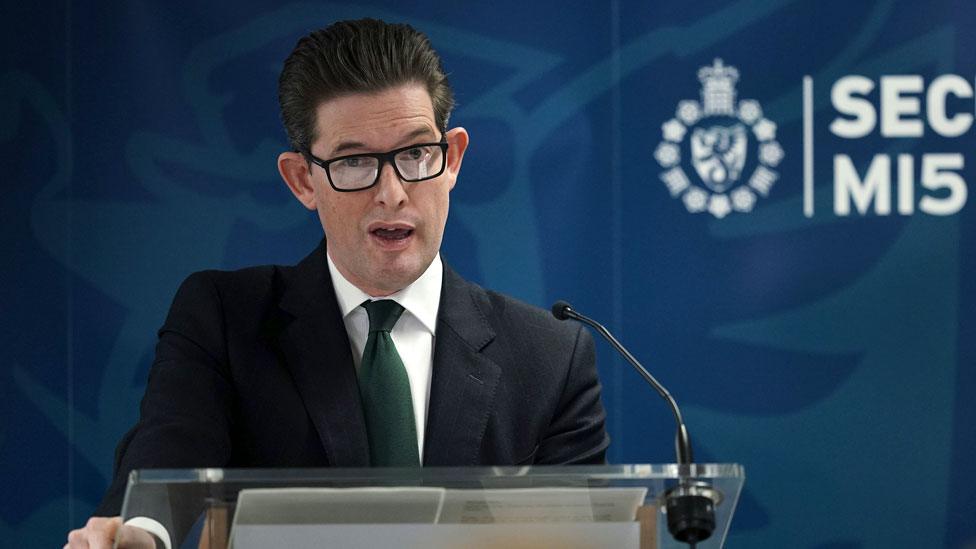
- Published6 July 2023
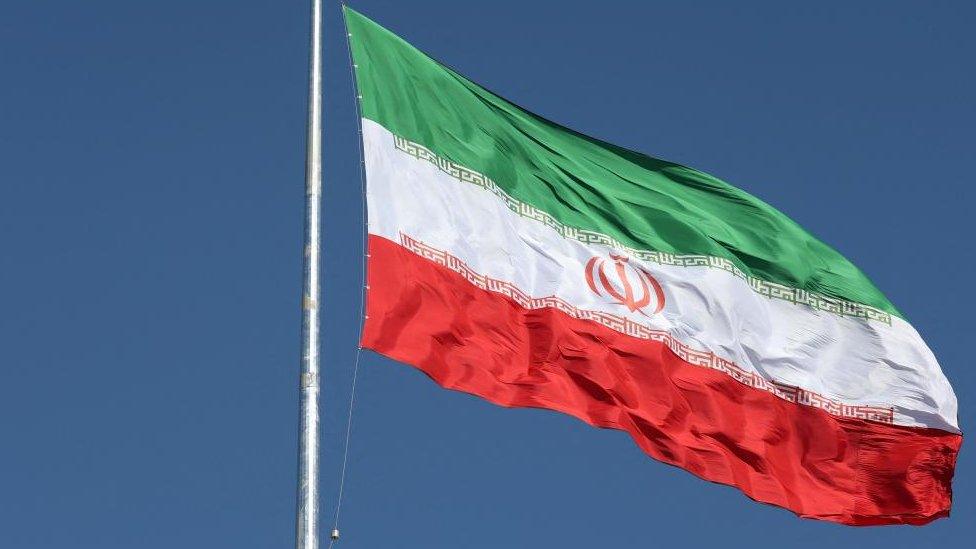
- Published19 January 2024
